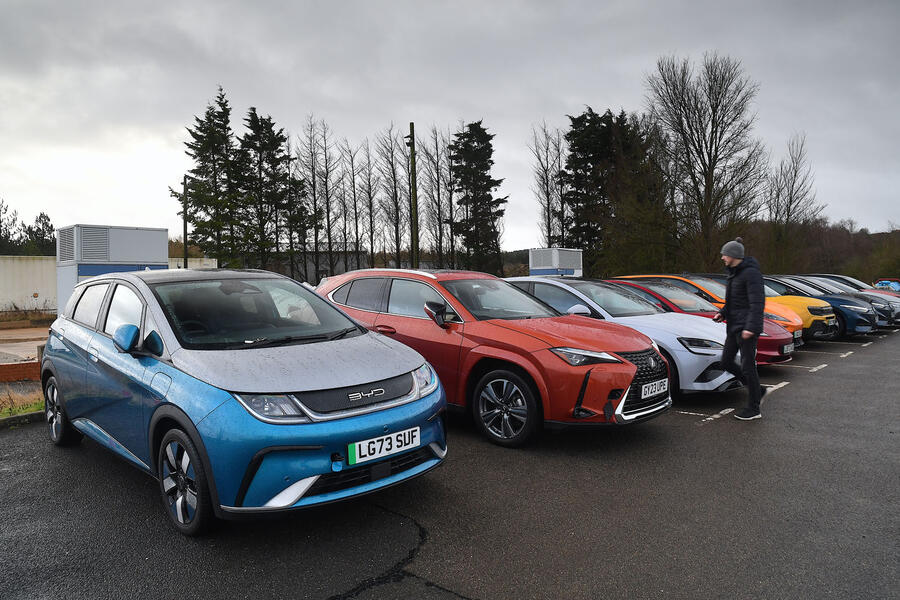The UK government has rejected calls from the automotive industry to reintroduce the electric car grant as a means of boosting EV uptake.
Responding to a plethora of recommendations outlined in the House of Lords Environment and Climate Change Committee’s Electric Vehicles report, the government detailed its stance on a wide variety of concerns and ideas relating to the electrification of the UK vehicle parc.
Most pertinent among its responses is a refusal to bring back the plug-in car grant (PiCG), which was launched in 2011 as a means of accelerating EV adoption by subsidising their purchase costs, and was phased out in 2022.
Initially the PiCG offered up to £5000 off the purchase of all plug-in cars but was downgraded on several occasions over the following decade and by its cancellation only contributed as much as £1500 to the purchase of a pure-EV - and then only the most affordable models on sale.
Calls to reintroduce it have grown in volume in recent months, in light of the government’s ambitious target to ban new combustion car sales in 2035 and the ZEV mandate, which obliges car manufacturers to sell a certain percentage of electric cars in the UK per year, starting at 22% in 2024 and rising to 80% in 2030.
Electric car demand, however, is faltering, and several voices from across the industry have claimed that subsidies are essential to boosting demand to a level that is sufficient to meet those objectives.

Fiat UK boss Damien Dally recently said it was “hugely disappointing” that chancellor Jeremy Hunt did not bring back the grant as part of his spring budget, because “the government has set the direction of travel by enforcing the zero-emission vehicle mandate and net-zero target but is doing nothing to incentivise retail customers to drive electric vehicles”.











Join the debate
Add your comment
Non Chinese car manufacturers design EVs to be expensive, so as to protect their fossil fuel car sales; you can see why the SMMT wants subsidies to allow the car manufacturers to keep making expensive EVs - that way they car manufacturers can keep protecting fossil fuel cars and overcharge for EVs.
But the targets set by the goverment mean the car maufacturers increasingly have to sell more and more EVs every year, otherwise the car manufacturers face huge fines. Expect the SMMT to increasingly say this is unfair and the goverment should give subsudies to encourage people to buy EVs.
Eventually this will rectify itself - either the manufacturers will go pop (and many will thanks to the Chinese), or they will start designing sensibly priced EVs, albeit possibly too late and they will go pop too.
But regardless, the charging infrastructure needs to substantially improve - and unfortunately the Brits (and politicians in particular) are terrible at investing in infrastructure (just look at the potholes and NHS).
The next 10 years are going to bring seismic changes to the car industry, long overdue in my opinion.
Government Ministers are lining up their next jobs with their mates in the fossil fuel industry. That's what's really happening here, it's pure corruption. They've been bought off. Meanwhile, the rest of us will suffer from economic stagnation and filthy air because this group of fossil fuel fanatics only care about selfishly lining their own pockets. The UK will lose the race to electrify if we let them carry on much longer. This will mean fewer jobs, dirtier air and more climate chaos. These crims should be in court.
Why should the taxpayer subsidise anyone buying an EV through government incentives when these cars pay ZERO VED already?! That's a massive subsidy for someone like me who cannot afford a new car and pays £395 a year VED!!!
Because they care about the future. You can take the bus, and this is not meant to be an insult.